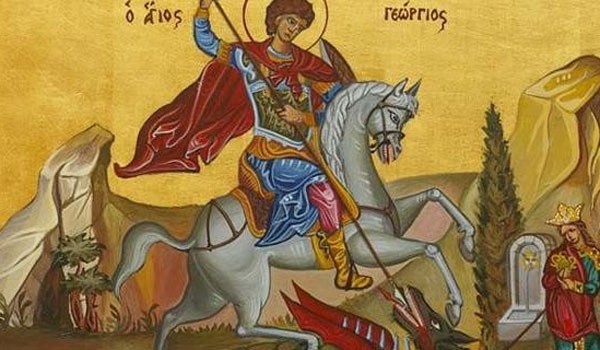Why is that, though?
When celebrations coincide within Great Lent or Holy Week, for example, the feast of St. George or St. Mark (Agios Markos), they are transferred postponed for the week after Easter Sunday.
The reason is simple: Holy Week and Lent are periods of mourning. During Holy Week the Greek Orthodox Church mourns the Passion of Christ, so it is no time for celebration.
This year, April 23 was Lazarus Saturday and St. George could not be honored on that day. Agios Georgios will be celebrated on May 2, Easter Monday. But in 2078, when Easter falls on May 8, St. George will be celebrated on April 24, a Sunday.
Therefore, the theory on the internet that St. George is honored after Easter, because the ecclesiastical psalms of St. George contain Holy Resurrection words that cannot be chanted before the Resurrection, is not valid. Besides, every Sunday is a day of resurrection. Simply put, the psalms of the saint had been written before the turn of the calendar, and then the feast always fell after Easter.


















